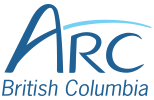ARC BC, or the Accessible Resource Centre, is a great resource that takes a little bit of work to access. ARC is a support specifically for students with perceptual disabilities. Perceptual disabilities include visual and hearing impairments as one might expect, but it also includes specific learning disabilities and physical impairments that can inhibit reading and hearing comprehension. ARC’s big job is converting books into Alternatively Formatted Digital Books. In essence the key is digitization to create texts that are easier to use, adapt, and manipulate. The process involves taking physical texts apart and scanning them. After they’re scanned a lot of work goes into making them usable adaptive tools. Well accessibility and differentiation are a big part of meaningful education, but it also happens to be codified. Within districts there are designations, but beyond those, there is the Accessible British Columbia Act. This means something different depending on the organization. For educators, the main point is that an accessibility plan exists and teachers need to do what they can to support this plan and accessibility for learners. The idea aligns with UDL, removing and preventing barriers to accessibility. The new challenge in technological support is accessible documents, especially now that digital documents are such a central part of communication for a ton of industries and classrooms. This solution does come with a couple of problems. To access this resource teachers have to have a student with a designation that includes a perceptual disability. THis means it’s unfortunately part of the support that can only be accessed because of the funding that comes with a designation even though supports are often an improvement in outcomes for many learners. The only other challenge that comes with a bunch of new accessible materials is teachers needing to continue their roles as a curator of information.

